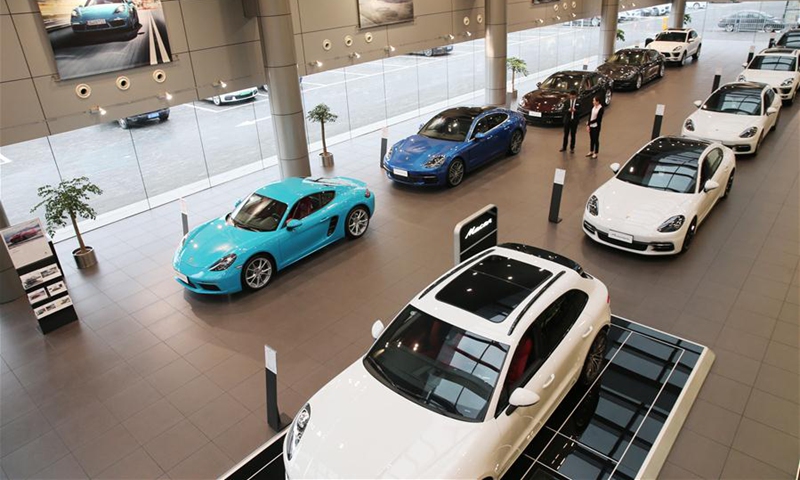US government faces historical legal challenge from US automakers over China tariff
Source: Global Times Published: 2020/9/24 12:20:37

Photo: Xinhua
The US government is facing historical legal charge from some of the most prominent American vehicle makers, including Tesla, Volvo, Ford and Mercedes-Benz, who are suing the US government over the tariff imposed on Chinese products.
Tesla said the tariffs were "arbitrary" and demanded that the government give a refund of their paid tariffs with interest.
The lawsuits were recently filed in the New York-based Court of International Trade, and was targeting the 25 percent tariffs on a list of vehicles products including spare parts.
Lin Guijun, vice president of the University of International Business and Economics, told the Global Times that the US has been upholding section 301 tariffs, which replaces international law with its own domestic laws, and American courts have to weigh compliance with whether it's illegal or not over the additional tariffs by the Trump administration.
"I think the automakers have a good chance of winning against the US government," said Lin.
From July 6, 2018, the US importers have paid a sum of $63.4 billion for goods imported from China, under the Section 301 Duty requirements according to the latest statistics from the US Customs and Border Protection (CBP), which typically collects duties from importers within 10 days of their shipments clearing customs.
Customs duties soared over the years since Trump wielded tariff as his biggest trade weapons. For the fiscal year of 2019, a total of $71.9 billion of total duties were collected by the CBP, surging sharply from $41.6 billion in 2018 and $34.6 billion in 2017, according to CBP.
Lin said that China's market is very important to American companies, and China has repeatedly said it will open up further, while the US government expected that by imposing tariffs to force the US companies to move production back to America is very impractical.
Given the huge consuming market, companies like Tesla has greater business opportunities in China, especially the government policy for new energy vehicles in place, Lin said.
Trump's tariffs has left the US automakers in the impossible situation of either to find cheap and quality products in other countries, or to increase its cost of production, said Bai Ming, deputy director of the international market research institute at the Chinese Academy of International Trade and Economic Cooperation.
"The US automakers are under increasing pressure from competitions from other countries," Bai said, "Increase in prices will drastically drag down the US brands' competiveness."
"Business from other areas, including the technology sector, will also follow suit and file lawsuits against the Trump administration over tariffs," Bai said.
Posted in: MARKETS